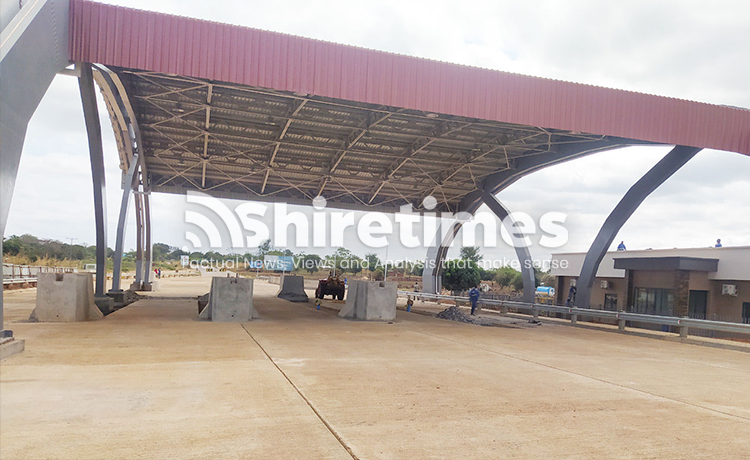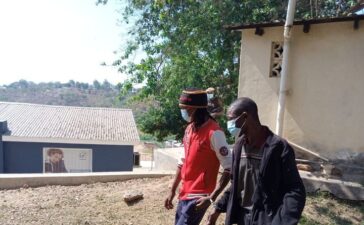In what appears to be a matter of the opposition irrationally carrying out their duty of ‘opposing’ that which the government does, toll gate fees schedule that has been placed in gazette by the Minister of Finance has incited a debate that this entry purports to weigh in.
The opposition quarters, have propagated sentiments alleging that the announced fees are exorbitant and ought not to be introduced in the first place. They desire that, if anything, the tollgates have to be there to simply beautify the highway otherwise they should be a free passage.
In particular, the MK1,700 toll fee scheduled for light vehicles has been described as exorbitant. However, in comparable jurisdictions such as Zambia, Mozambique, Tanzania and South Africa for example, an average toll fee is at an equivalent of MK2,000. At Chongwe toll plaza in Zambia for example, the toll fee is ZK50 which is an equivalent of MK1,900. At Kateme toll plaza in Mozambique, the toll fee is MZN160 which is an equivalent of MK2,080.
Reports by Malawi Roads Administration (RFA) indicate that Malawi has 15,415km of classified roads, out of which approximately 4,405km is of bitumen standard representing 28 percent, and the rest (72 percent) is unpaved and mostly earth-standard.
This gloomy picture renders a huge disadvantage given the fact that road transport remains the major mode of commuting in Malawi handling more than 70 percent of internal freight traffic and 99 percent of passenger traffic.
As a primary mode of transportation, the country ought to have more paved roads to overcome the problems and hazards that are imposed by poor condition of the road network. To make it worse, the increasing human population and rapid expansion of motorization has not been matched with corresponding improvements in regulations, capacity improvements and standardization of infrastructure.
Financing of road infrastructure continues to be a major challenge as resources are inadequate to cover annual demand for road maintenance, rehabilitation and upgrading. It has, now, become a matter of urgency to establish an expediate road development strategy to ensure that more roads are standardized and well maintained.
In the 2021/2022 fiscal year budget, transport sector has been allocated K208.4 billion, or 2.0 percent of GDP, representing 10.5 percent of the total budget. Out of this, K94.5 billion has been allocated to the Roads Fund Administration for rehabilitation and maintenance of the road network as well as continuation and completion of various road projects across the country.
Further to that, the government embarked on constructing two toll plazas on the M1 road, at Chingeni in Ntcheu and Kalinyeke in Dedza, which will assist to raise funds for road maintenance activities in the country. It is projected that to carry out periodic maintenance of 1250KM will incur Road Authority a sum of MK65 Billion and upgrade 762 KM of earth roads to paved standard by 2022 will cost the national basket MK153 Billion Kwacha. Yet that is only a meagre percent of all the roads that must be constructed. By a simple ratio estimation, to cover all the 72 percent of unpaved roads will require capital of up to MK2.2 Trillion Kwacha. That is an amount above the current national budget, which implies that on normal budgetary allocation, it is not possible to pave all the important roads even in the next 10 years.
The government, therefore, made a sensible decision to enact the tollgates with an intention to raise enough funds to build, improve and rehabilitate roads for the safety of road users.
Perhaps the question is; how about fuel levy, is it not enough for funding roads? Well, it would not have been of any need to construct toll plazas if the money collected was enough. Almost 80 percent of income for roads fund is generated from this levy.
The RFA cites that annual fuel levy collections have increased from MK11 billion in 2014/2015 to MK20 billion in 2015/2016; Another shoot was recorded to MK27 Billion in 2016/2017 and to MK31 billion in 2017/2018 – a growth of 182% in the past three years. That may seem like a huge amount but only comes short when compared to budgetary allocation and road infrastructural needs. To reiterate, budget for roads construction and rehabilitation in the 2021/2022 fiscal year is MK94.5 billion yet Roads Authority only collects up to MK31 billion – which is not even 50 per centum of the required funding for road infrastructure.
It is not a peculiar practice to have fuel levy and collect funds through tollgates at the same time. In South Africa for example, fuel levy is approximately MK263 per little of petrol while in Malawi it is MK97.68, yet South Africa complements the roads funds source with toll plazas. Zambia has 26 toll roads, South Africa has 36, Zimbabwe has 27, Tanzania and Mozambique have tollgates as well. It is only Malawi that did not have tollgates as a strategy for raising roads funds.
You therefore must not be misinformed as though raising funds through tollgates is bad or that concurrently doing so while charging fuel levy should not be celebrated. Malawi must raise enough money to make our roads better and all cars passing through the stretch must play a part in contributing to this development. The MK2 billion Chingeni tollgate is expected to raise MK4.5 billion Kwacha a year. It will make a substantial contribution to road network development. When you see good roads in Mozambique, South Africa, Zambia and Tanzania and wish you had the same in Malawi, it is because enough funds are collected for road infrastructure development.
The good roads that we much-need come at a price and it can’t be an exception in Malawi case. It is far much better that we must contribute to these funds ourselves than perpetually getting loans which burden our economy in the end, causing it to slump. Once beaten twice shy. We have a bad history record of abuse of such funds by previous administration, a scenario that is, without doubt, largely contributing to people’s pessimistic attitude towards this initiative. They fear the funds would be abused and never serve the intended purpose. Fair worries!
However, the coming in of Chakwera administration which is, serve for the relatively slow pace, entrenching the rule of law and citizens’ empowerment in governance affairs provides a significant turnaround where such funds might have seen their last abuse with the previous regime. Citizens are now highly empowered and charged to guard against such abuses. The ACB is now highly charged and sufficiently independent to pursue cases of such abuses in a manner that guarantees deterrence. All we need to do on our part is to stop defending thieves when they are picked for prosecution. What we saw from UTM and AFORD supporters in the case of Kambara and others is what needs to be avoided at all cost if we have to move forward.













